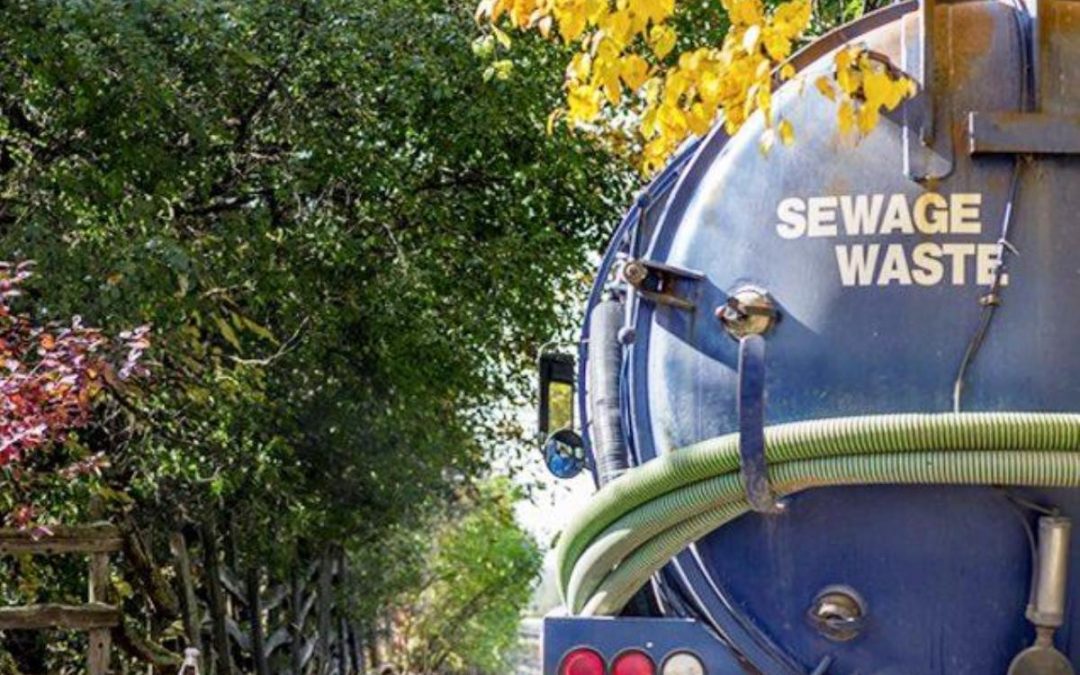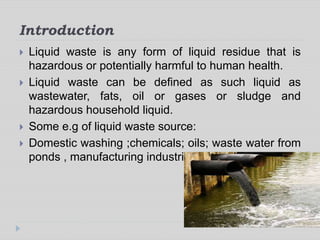Some Known Incorrect Statements About Reclaim Waste
Some Known Incorrect Statements About Reclaim Waste
Blog Article
The Greatest Guide To Reclaim Waste
Table of ContentsFacts About Reclaim Waste UncoveredNot known Factual Statements About Reclaim Waste Reclaim Waste - QuestionsThe smart Trick of Reclaim Waste That Nobody is Talking AboutExcitement About Reclaim Waste
Explore the kinds, incidents, and forms of fluid waste. Residential sewage waste refers to the waste and items from a domestic septic container. This kind of waste is produced by people in residences, institutions, and various other buildings. This only consists of septic containers that have a drainpipe field. The correct administration and disposal of residential sewage waste need fluid waste to be transferred to a sewage treatment plant where the appropriate methods and equipment are related to purify and deal with waste.
Industrial waste usually includes prospective hazards, such as combustible materials or a blend of fluid and strong waste products, and needs an extra innovative and in-depth disposal process. The disposal of commercial waste generally entails the filtering of waste prior to transport to guarantee safe and correct disposal. Industrial waste is produced from by-products and overflow of industrial procedures and manufacturing.
This sort of waste can not make use of the same sewage administration transportation or procedures as septic or industrial fluids. The hazardous waste monitoring process needs the examination and testing of liquid waste before it goes through the disposal process (industrial wastewater treatment). Drainage waste is the liquid waste that originates from drainage and excess stormwater in very booming areas or cities
Drainage waste can create contamination and flooding otherwise dealt with properly. Discover more about sewage system cleaning and waste management. Ensuring appropriate waste management can stop disasters and reduce environmental injury. Both individuals in residential settings and specialists in business or manufacturing sectors can take advantage of comprehending the procedures and guidelines of liquid waste administration.
The 9-Second Trick For Reclaim Waste
Get in touch with PROS Services today to discover our waste management and disposal solutions and the correct methods to look after the fluid waste you produce.
(https://issuu.com/reclaimwaste1)Do you recognize what takes place to your water when you pull the plug, flush the bathroom or drain pipes the cleaning equipment? No? Well, it's worth knowing. This supposed 'wastewater' is not just a vital resource yet, after therapy, will be launched to our land, waterways or the ocean. Utilized water from commodes, showers, baths, cooking area sinks, laundries and industrial processes is understood as wastewater.

water used to cool machinery or tidy plant and equipment). Stormwater, a form of wastewater, is drainage that moves from farming and metropolitan locations such as roofing systems, parks, gardens, roadways, paths and rain gutters into stormwater drains, after rainfall. Stormwater flows without treatment straight to neighborhood creeks or rivers, eventually reaching the sea.
10 Simple Techniques For Reclaim Waste
In Queensland, the majority of wastewater is dealt with at sewage therapy plants. Wastewater is transported from residential or commercial sites through a system over at this website of sewage systems and pump terminals, referred to as sewerage reticulation, to a sewer therapy plant. City governments develop, maintain and run most sewer therapy plants. Operators are accredited under the Environmental Management Act 1994 to discharge treated wastewater at an acceptable ecological requirement into waterways.
The Department of Natural Resources encourages city governments regarding managing, operating and keeping sewage systems and therapy plants. In unsewered locations, neighborhood governments might need homeowners to set up specific or home sewer treatment systems to deal with domestic wastewater from commodes, cooking areas, restrooms and washings. The Department of Natural Resources authorises making use of home systems when they are proven to be effective.
In some brand-new communities, therapy of some stormwater to remove trash, sand and crushed rock has actually started making use of gross toxin traps. Wastewater therapy happens in four phases: Gets rid of solid issue.
Uses little living microorganisms knows as micro-organisms to break down and remove continuing to be dissolved wastes and fine fragments. Micro-organisms and wastes are incorporated in the sludge.
Unknown Facts About Reclaim Waste
Nutrient removal is not offered at all sewer treatment plants due to the fact that it requires costly specialist tools. Clear liquid effluent created after therapy might still have disease-causing micro-organisms - liquid waste disposal melbourne.

Most wastewater streams right into the sewerage system. Under the Act, local governments administer authorizations and permits for environmentally pertinent activities (ERAs) including wastewater releases that might have a neighborhood effect.
How Reclaim Waste can Save You Time, Stress, and Money.
Surveillance provides accurate info about water high quality and can confirm that licence problems are being satisfied. The info obtained through monitoring offers the basis for making water high quality choices.
Report this page